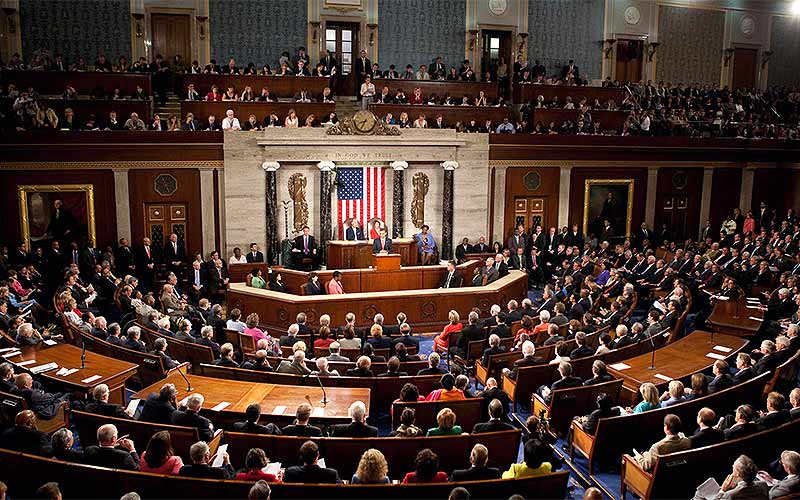
Navajo office keeps an eye on health-care debate

WINDOW ROCK
With the Affordable Care Act having such an uncertain future, three senators, Tom Udall, D-N.M., Martin Heinrich, D-N.M., and Heidi Heitkamp, D-N.D., this morning proposed amendments that would protect against Medicaid cuts to the Indian Health Service, tribal care clinics and urban health facilities.
However, the Navajo Nation is more concerned about protecting the Indian Health Care Improvement Act that was included under the ACA.
“The (IHCIA) was rolled into the original ACA but it was a bill that is older than the ACA,” Jackson Brossy, executive director of the Navajo Nation Washington Office, said in a phone interview on Wednesday. “It’s been around longer than the ACA.”
The original IHCIA was signed into law in 1978 and expired in 2000, according to the IHS website. This is important legislation that makes it law that Congress has to provide funding for IHS facilities annually.
For a decade, tribal governments, organizations and citizens were trying to get the IHCIA updated and reenacted, according to a press release on the IHS website.
In 2010, the IHCIA was signed into law as part of the ACA and has no expiration date.
The 44th president, Barrack Obama, in a statement said, “As a senator, I co-sponsored this act back in 2007 because I believe it is unacceptable that Native American communities still face gaping health care disparities.”
He went on to say that reauthorizing the IHCIA is an obligation by the US.
“Our responsibility to provide health services to American Indians and Alaska Natives derives from the nation-to-nation relationship between the federal and tribal governments,” said Obama.
“And today, with this bill, we have taken a critical step in fulfilling that responsibility by modernizing the Indian health care system and improving access to health care for American Indians and Alaska Natives.”
Brossy also said the obligations to tribes by the federal government to provide health care even predates the IHCIA.
“Not to mention the fact that trust responsibilities and treaties the United States has with tribes long predate any discussion about federal health care bills,” Brossy said. “That’s one of our main concerns – retaining the Indian Health Care Improvement Act.”
The new Democrat-proposed amendments, sponsored by Udall, Heinrich and Heitkamp, came after an unpredictable week on the hill with Republican-led efforts to repeal the ACA.
Late Thursday night, at around 11 p.m., the Senate rejected, 49-51, what many are calling the “skinny repeal” bill. This would have repealed certain parts of the ACA and only needed a simple majority to pass instead of the mandated 60.
This skinny repeal bill would have pulled back Medicaid expansion, repealed the individual mandate that everyone have health insurance and slash funding for what was left of Medicaid, according to a statement from Udall’s offfice.
Over half of Native American and Alaskan Native children are enrolled in Medicaid. Over a quarter million people from across Indian Country have benefitted from Medicaid expansion, according to a statement from Udall’s office.
“Threats to dismantle the individual marketplace and decimate Medicaid would hit Native Americans and Alaska Natives the hardest,” Udall, who is vice chair of the Senate Indian Affairs Committee, said in a statement. “The Affordable Care Act and Medicaid expansion have helped fulfill our federal government’s trust responsibility to tribes, by providing badly needed resources to fill the funding gap facing Native health facilities.”
This Democrat-proposed amendment would send the Senate GOP repeal bill back to committee for amendments that would exempt Native American and Alaskan Native health care facilities from Medicaid cuts.
“We’re working to make sure the concerns of Native Americans throughout the country and in our states are heard,” Heitkamp said in a statement. “Access to health care is a treaty and trust obligation to Native communities – but under this bill, that health care is in jeopardy. I won’t stand for it.”
In an unexpected move, with gasps coming from the floor, Sen. John McCain, R-Ariz., cast the final Republican vote to kill the bill. Alongside McCain, Republicans Lisa Murkowski, of Alaska, and Susan Collins, of Maine, continued their opposition to the skinny repeal bill.
Murkowski has been vocal about not supporting her party’s ACA repeal efforts for months now. Collins was one of two Republicans who vote no to the procedural vote to begin debate on repealing the ACA.
Senate Majority Leader Mitch McConnell, R-Ky., in a statement to the Senate said, “It’s time to move on.”
McConnell asked for unanimous consent that at 10 a.m. today the Senate begin working on a new bill, the National Defense Authorization Bill.
For now, it seems repeal of Obamacare have stalled.
To read the full article, pick up your copy of the Navajo Times at your nearest newsstand Thursday mornings!
Are you a digital subscriber? Read the most recent three weeks of stories by logging in to your online account.







 Highway 264,
Highway 264, I-40, WB @ Winslow
I-40, WB @ Winslow